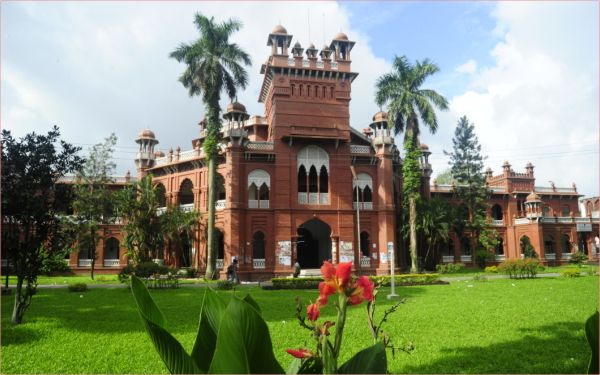|
Post Campus

Club University: An Opportunity
Asrar Chowdhury
In 1954, the Chicago and Harvard trained MIT professor and the first American recipient of the Nobel Memorial Prize in Economics in 1970, Paul Samuelson introduced a concept that both clarified and created confusion. As a science, Economics discusses scarcity- goods that are not abundantly available (not free). Samuelson observed that some goods are produced in a society that are not free (are scarce), but once made available can be provided to more consumers at no extra cost. The consumption of new consumers will not restrict the consumption available of existing consumers. Samuelson termed these goods as Public Goods. Although a formal identification of public goods was path breaking in economic science, the name created confusion that public goods are goods produced by the public sector only. Staying away from technical jargon, let us see try to clarify this confusion.
Bangladesh Betar (public sector) and a private Radio Channel, both provide a service that involves a cost. The services of neither of the two are for free. However, once the radio service is made available by the State or the private sector and an additional, say 10,000 people enter Dhaka City, the two radio companies do not incur any additional cost in providing their services to these extra consumers. The consumption of these additional 10,000 listeners will also not affect the consumption of the existing listeners. Alas! Very few goods qualify as a pure public good, national defense is cited as one of the few canonical examples.
In 1965, the Chicago trained George Mason University professor and the recipient of the Nobel Memorial Prize in Economics in 1986, James Buchanan modified Samuelson's public goods. Buchanan's modification is relevant to today's Post Campus that seeks to establish why university education is an opportunity.
Buchanan observed, because of scarcity, most goods are provided through an exclusion mechanism that discourages consumption or access. This exclusion can be prices where higher prices discourage additional consumption. Exclusion can also be through non-price mechanisms. An example of non-price exclusion that is relevant to the present context is admission. Buchanan termed such goods as Club Goods where access is initially excluded through price or non-price mechanism, and after exclusion is made, members of the club enjoy the good equally with no member's access or quantity being adversely affected.
University education in Bangladesh and throughout the world is provided by either the state or the private sector. Whoever is the provider, university education is not free. There is a cost involved in its provision. The number of seats any university or any department can offer is usually always less than the demand made by aspiring applicants. Like any club, each university also has a maximum capacity to which it can ensure smooth access and provision of its services to the members of its club.
University education is not free irrespective of whoever is the provider- the State or the private sector. An upper limit in providing seats (scarcity) and exclusion through admission tests in providing those limited seats makes university education an opportunity to enter a club. It is an opportunity because the lucky entrants almost usually form a small percentage of the total number of applicants who aspired to enter Club University.
The State is morally obliged to ensure a certain level of education to all of its citizens. This is a constitutional right of all citizens of the land. That minimum level of education in Bangladesh is primary education. After this critical level, any level of education is not a constitutional obligation of the State. The State provides this education where, when and how possible, but not more so. Excess demand after State provision is met by the private sector as much as possible. Policy makers and researchers frequently quote that the supply of university seats falls short of the total demand by aspiring applicants. This indeed makes entering into Club University an opportunity for those who get this privilege.
In an age where things around us are changing faster than at any point in human history, it will be the Club University that will provide the laboratory to prepare for future life. Almost all established people in the society from writers and poets to scientists and what not have gone through the experience of Club University. Universities- like any other club- do not provide only education. They provide a world of opportunities that are open for all its members to seize and go one step forward in life.
The Campus Generation in Bangladesh belongs to the privileged Club University. Enjoying a privilege also brings with it responsibility. And this responsibility includes taking Bangladesh to her rightful place on the world stage. This nation is being quoted as a nation that has the potential to make a leap forward to becoming a middle income country. If this prediction is to be transformed to certainty, it will be the members of Club University who will have to take and make the lead.
The Campus Generation- Welcome to Club University! Make the best use of the 18-24 experience that comes only once in a life time.
(The author teaches economic theory at Jahangirnagar University and North South University.)
|
